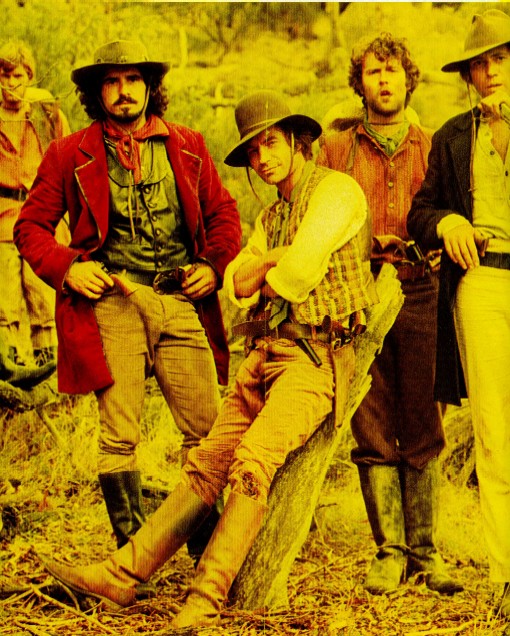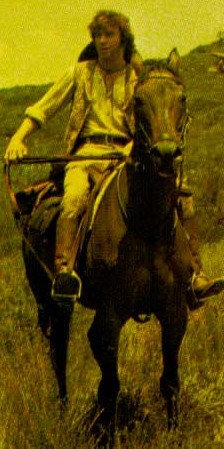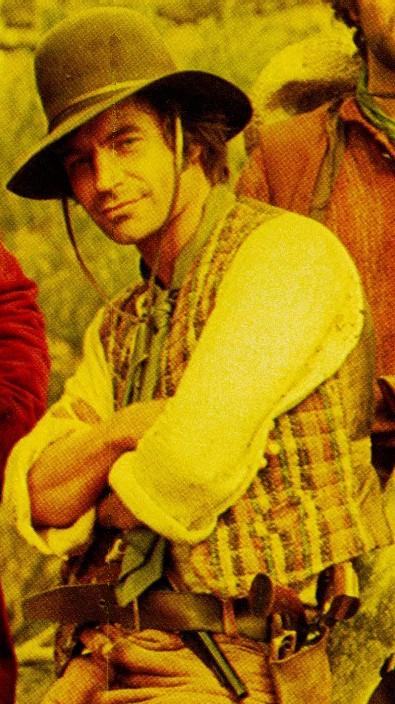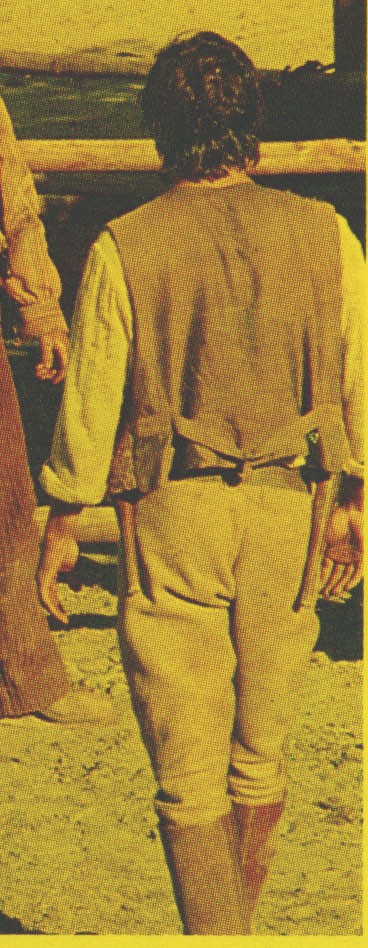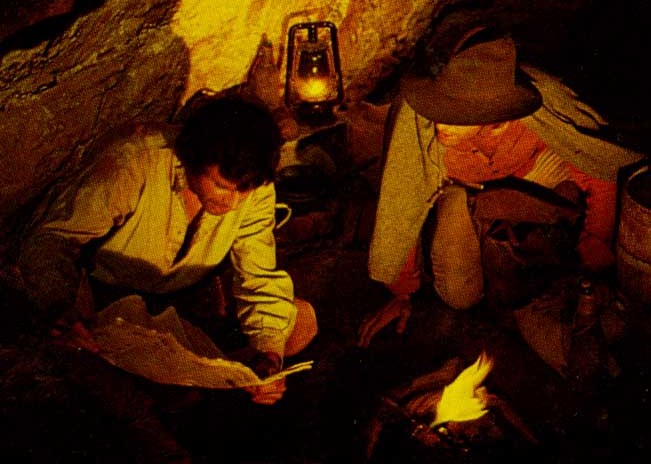|
John Castle as Frank Gardiner |
| |||||||
|
|
Interview |
|||||||
|
|
|
|
|
|
| |||
|
To be truthful, at least on the basis
of the historical records, Frank Gardiner, the bushranger who persuades Ben
Hall to join his gang, is not a very attractive character. Certainly, nothing like the way English
actor John Castle plays him. “Even in the
photographs I’ve seen of him, Gardiner was not a very appealing fellow,” says
Mr. Castle. “Admittedly, the
documented records we have on him are limited. Most of the information is based on police reports, which are
very biased, and on legend and gossip, so it’s difficult to get him in
perspective. But the very fact that
he survived was not just a matter of luck.
I think there was a lot of cunning there, and possibly, some
cowardice. He was a cool, calculating
character.” Mr. Castle
admits that if the series had set out to be strictly historical, then most
likely he would not have been cast in the role. “We couldn’t be more different, Gardiner was very dark, very
sallow. I have blue eyes. But even more important, he was a
brilliant horseman. There’s
substantial evidence that the gang stole racehorses and held up coaches on
them. You have to be really good to
do that. Well, I’m nowhere near that
sort of a horseman. I did have one
month of riding in Jamaica last year, when I was filming The Fight Against
Slavery, for the BBC, but racehorses are out of my class.” Given the
choice, though, between accurate representation and good theatre, Mr. Castle
chooses theatre. “We’ve tried to be
as accurate as possible, but a time comes when you have to throw history away
to make an exciting, interesting, good, fast-moving series.” Though he did
not try to romanticize Gardiner, or to turn him into a heroic figure, Mr.
Castle did try to give him human qualities.
“I’m a romantic myself, being an Englishman, but I didn’t try to make
Gardiner a romantic figure. Instead,
wheat I tried to do, to make him more interesting dramatically, was to give
him contrast, to create a sort or tension in the character. So I tried to make him very charming and
very lovable, but also a very violent man.
I hope, however, the violence came through by osmosis – vicariously –
through Gardiner’s sidekick, Johnny Piesley.
He’s a very powerful, physically large man. So all I had to do as Gardiner was let him do the rough stuff
for me. I hope the contrast comes through
– the fact that in a sense, Gardiner was a totally unreliable, but totally
changeable man. He’d do something
very selfish one moment, something very honorable the next, then the next,
something very terrible.” Though he
enjoyed the role, John Castle feels more at home in the theatre. “Theatre is the actor’s medium. Television is the director’s medium. He determines everything. The very fact that he casts a particular
actor, like me, in a role means he sees you in that part. But in the theatre there is more freedom
for the actor to interpret his role, and more excitement. But I must admit I’m schizophrenic about
it. One minute I’m interested most in
the theatre, the next minute I’m interested in making money. There is much more money in television. Not that you don’t put as much into
television as the theatre. You
do. And they both have their
satisfactions. So I’m split between
the two.” Mr. Castle
drifted into acting almost by accident.
His childhood ambition was to go to Dartmouth, understandable, since
his hero was Horatio Nelson. “It was
pretty obvious, though, that I wasn’t suited for the Navy. I’m far too hysterical.” Instead, he went into a variety of jobs,
as clerk and office worker, in textile firms, oil firms and many more. He changed around, by choice or by force
of circumstances. Being fired from a
job may be a disaster for most people, but for Mr. Castle, the sack, or the
prospect of being sacked, finally forced him into doing something with his
life. So he chose teaching, and went
to Trinity College in Dublin. Once again, he
got the sack – not for academic shortcomings, more romantic than that. “The typical thing for a young man,” he
explains. “Having a female in college
out of hours.” So he
auditioned for the Royal Academy of Dramatic Art, and set out on his career
as an actor. “I never thought, during
one of my real life roles a s waiter in Brighton when I served Peggy Ashcroft
and Eric Porter, that I’d actually end up playing with them in the theatre.” His is a career
that has spanned Shakespeare to Man of La Mancha. He has played
Hamlet and enjoys Shakespeare most, but has learned a lot from people like
Katherine Hepburn and Peter O’Toole, with whom he appeared in the film Lion
in Winter. His acting
experience has been extensive. There
was Henry V in the Open Air Theatre in Regents Park, a tour that took him to
India and Asia with the New Shakespeare Company. There have been television roles in series like Softly, Softly,
and film roles as Octavius Caesar in Anthony and Cleopatra, and Marat in The
Promise. Australia is
the furthest he has been away from England on an acting assignment. His wife, a writer, and daughter Shelley,
named after the poet, joined him in Australia for a month during the filming
of the series. They liked it enough
to want to stay longer, if the work were available. It’s very relaxing in Australia, and much less tense than in
England,” Mr. Castle explained. “I
think there is something about the Australian character, perhaps an ability to
laugh at himself, that appeals to the English. It may also be one of the reasons the bushranger may never
become the mythical hero that the American cowboy has become. If a commercial set-up promoted them, the
Australian bushranger days might be turned into the equivalent of the
American Wild West, but I think the Australian is too phlegmatic and too
realistic to turn the bushranger into the same type of hero.” But he does
think the Ben Hall series will appeal to overseas audiences, particularly in
England. “I had my doubts, until I
saw the finished production,” he says.
“At first, I didn’t’ think such a high standard could be achieved, not
at the pace with which we worked. In
a sense, it’s a miracle the standard was achieved.” | ||||||||
|
|
Part of
the... |



